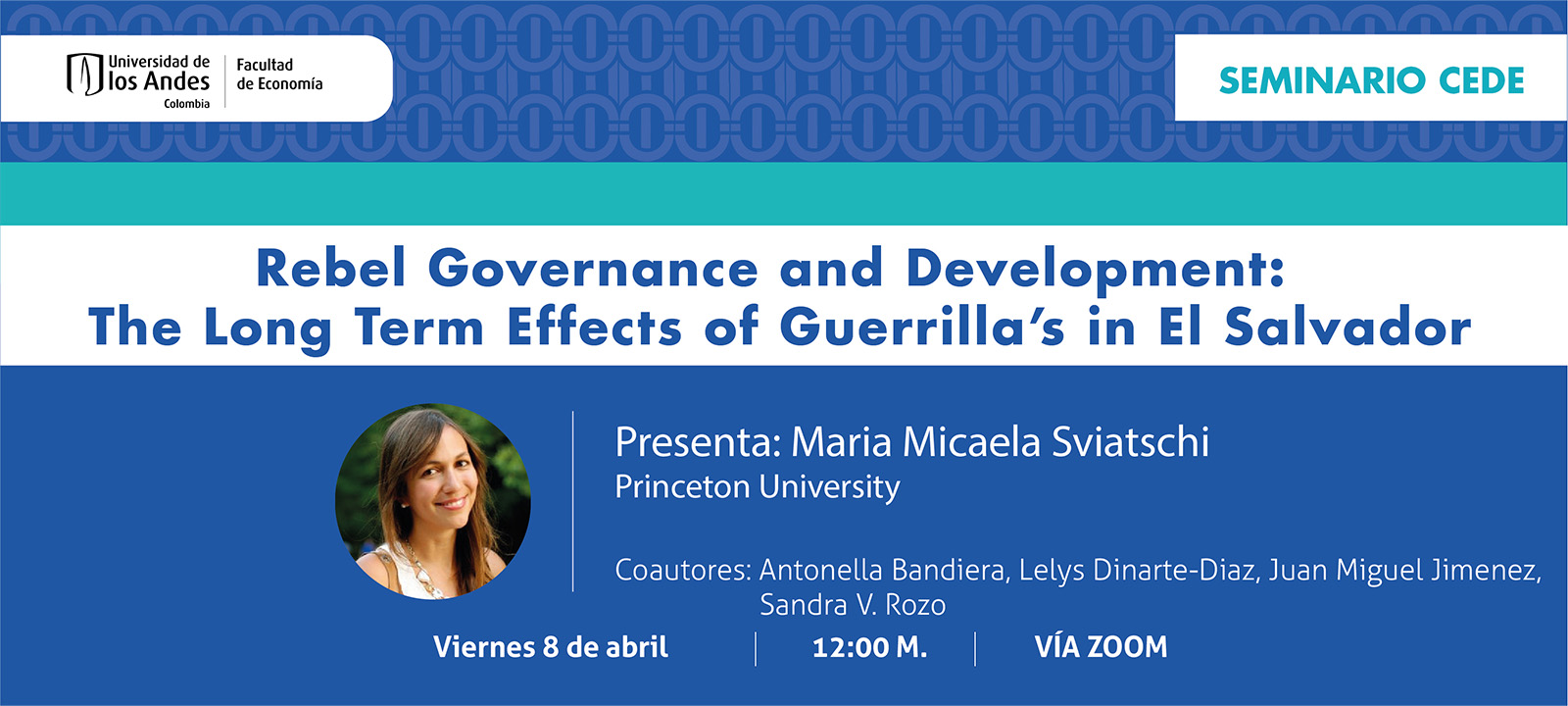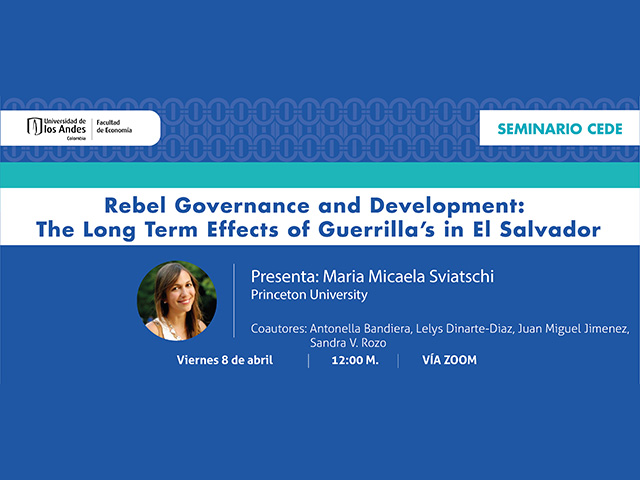Seminario CEDE - Maria Micaela Sviatschi

How can territorial control by armed non-governmental actors impact long-term development? This article investigates the economic, social, and political consequences of guerrilla’s territorial control in the Salvadoran Civil War. It employs spatial regression discontinuity design and census data to compare areas around and close to the boundary of guerrilla’s controlled territories between 1981 and 1991. Results indicate that areas inside and in close proximity to guerrilla-controlled boundaries have significantly less night light density, worse education outcomes, and lower wealth indexes relative to the areas outside in the 2010s. These effects are primarily driven by the erosion of labor markets, lower public goods provision, and higher political discontent and mistrust.

